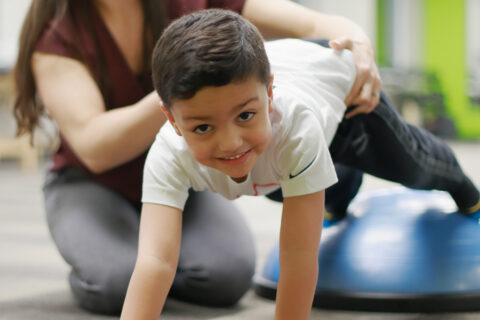Play and Wellness for Children: From Toddlers and Beyond
In a world increasingly dominated by screens and structured routines, the essence of unstructured play and a focus on holistic wellness for children seems to be diminishing. Yet, these two elements are crucial cornerstones for healthy child development, especially for toddlers and up. Let’s delve into why they are so essential.
- Building Blocks for Physical Development
From the moment a child starts crawling, physical activity becomes an essential part of their growth. Playing not only builds muscles but also enhances motor skills. For toddlers, this could mean improved balance from playing catch or increased hand-eye coordination from stacking blocks.
- Fostering Cognitive and Creative Skills
Unstructured play, such as imaginative games or simple doodling, is a powerhouse for cognitive development. Children learn problem-solving, develop spatial awareness, and enhance memory skills. They also learn about cause and effect, and even the basics of mathematical and scientific concepts. The freedom of play allows them to think out of the box, enhancing their creativity.
- Emotional and Social Growth
Playdates and group plays are not just about sharing toys. They’re platforms where children learn essential life skills. By interacting with their peers, children learn about sharing, empathy, negotiation, and even conflict resolution. They understand their emotions better and gain confidence in expressing themselves.
- Wellness Beyond the Physical
Wellness for children isn’t only about their physical health. Emotional and mental well-being is equally crucial. Routine play and recreational activities serve as an outlet for stress and anxiety, promoting mental wellness. This relaxation and downtime can also aid in better sleep, which further contributes to overall well-being.
- Building Resilience and Adaptability
Not all games go as planned. Sometimes the tower of blocks will tumble, and sometimes it may rain on a planned day out. Such scenarios teach children about resilience. They learn to cope with minor disappointments and understand that it’s okay to try again. This adaptability and resilience will aid them throughout their lives.
- Instilling a Love for Nature
Outdoor play, especially in green spaces, has a myriad of benefits. It not only promotes physical activity but also instills an appreciation for nature. Children who play outdoors regularly have been found to have better concentration and are more grounded.
- Preparing for the Future
While it might seem like they are “just playing,” children are, in fact, preparing for the future. The skills they gain during play lay the foundation for academic learning. They get a better grasp of language, develop critical thinking, and even basic math skills. Play ensures that when they enter structured learning environments, they are not only ready but also eager to learn.
In Conclusion
As parents, guardians, or educators, understanding the profound benefits of play and overall wellness is imperative. It’s not about letting children “just be kids,” but about fostering a holistic environment where they can thrive, develop, and grow into well-rounded individuals. So, the next time you see a child immersed in play, remember they’re not just playing; they’re building their future.


